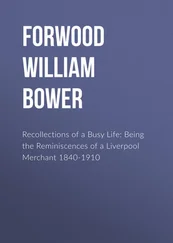William Dunlop - Recollections of the War of 1812
Здесь есть возможность читать онлайн «William Dunlop - Recollections of the War of 1812» — ознакомительный отрывок электронной книги совершенно бесплатно, а после прочтения отрывка купить полную версию. В некоторых случаях можно слушать аудио, скачать через торрент в формате fb2 и присутствует краткое содержание. Жанр: foreign_antique, foreign_prose, на английском языке. Описание произведения, (предисловие) а так же отзывы посетителей доступны на портале библиотеки ЛибКат.
- Название:Recollections of the War of 1812
- Автор:
- Жанр:
- Год:неизвестен
- ISBN:нет данных
- Рейтинг книги:4 / 5. Голосов: 1
-
Избранное:Добавить в избранное
- Отзывы:
-
Ваша оценка:
- 80
- 1
- 2
- 3
- 4
- 5
Recollections of the War of 1812: краткое содержание, описание и аннотация
Предлагаем к чтению аннотацию, описание, краткое содержание или предисловие (зависит от того, что написал сам автор книги «Recollections of the War of 1812»). Если вы не нашли необходимую информацию о книге — напишите в комментариях, мы постараемся отыскать её.
Recollections of the War of 1812 — читать онлайн ознакомительный отрывок
Ниже представлен текст книги, разбитый по страницам. Система сохранения места последней прочитанной страницы, позволяет с удобством читать онлайн бесплатно книгу «Recollections of the War of 1812», без необходимости каждый раз заново искать на чём Вы остановились. Поставьте закладку, и сможете в любой момент перейти на страницу, на которой закончили чтение.
Интервал:
Закладка:
Washington Irving is the only describer of your "American Teutonic Race," and this, my debut in the New World, put me down in the midst of that worthy people as unsophisticated as possible. It is refreshing , as his little Lordship of Craigcrook used to say, in this land where every man is a philosopher, and talks of government as if he had been bred at the feet of Machiavel, to meet with a specimen of genuine simplicity, perfectly aware of his own ignorance in matters which in no way concern him. Your Dutchman is the most unchangeable of all human beings, " Caelum non animum mutant, qui trans mare currunt " applies with peculiar force to the Batavian in every clime on the face of the globe. In America, at the Cape of Good Hope, in the congenial marshes of Java, in the West Indies, and at Chinsurhae on the banks of the Ganges, the transmarine Hollander is always the same as in his own native mud of the dams and dykes of Holland, – the same in his house, his dress, his voracious and omniverous appetite, his thrift and his cleanliness.
Among these good, kind, simple people, I spent a month or six weeks very pleasantly. Loyal and warmly attached to the British Crown, they followed our standard in the Revolutionary War, and obtained from government settlements in Canada when driven from their homes on the banks of the Hudson. From what I could learn from them, the Americans had persecuted them and their families with a rancour they displayed to no other race of mankind. When prisoners were taken in action, while the British were treated by them with respect, and even with kindness, the Dutch were deliberately murdered in cold blood. Men without arms in their hands, but suspected of favouring the British cause, were shot before their own doors, or hanged on the apple trees of their own orchards, in presence of their wives and families, who without regard to age or sex, were turned from their homes without remorse or pity. And one old dame told me that she was for six weeks in the woods between Utica and Niagara, unaccompanied by any one but her two infant children, looking for her husband, who she luckily found in the fort of the latter place; at one time she and her poor babes must have perished from hunger, but for some Mohawk Indians, who came up and delivered them, and conducted them to the Fort. The Dutch themselves ascribe this very different treatment of the two races to the fear of the Americans that the British would retaliate in case they were ill used, while the Dutch could not.
This, however, could not have been the case, for had the Americans feared vengeance on the part of the British for the wrongs they inflicted on their countrymen, they must have equally feared that they would not quietly submit to injuries inflicted on men who were their loyal and faithful fellow subjects. I therefore suspect, that, so far as their statements were correct, and they must have been so in the main, for I have the same stories from the Dutch of the Niagara District, who had no communication whatever with their compatriots of Williamsburg, and though we must allow great latitude for exaggeration in a people who were, no doubt, deeply injured, and had been brooding over their wrongs for a period of upwards of thirty years, during all which time their wrath had gathered force as it went, and their stories having no one to contradict them, must have increased with each subsequent narrator, till they had obtained all the credence of time-honoured truth – allowing for all this, but insisting that the stories had a strong foundation in fact, the rigor of their persecution must be attributed to another feeling, and must have, I should think, arisen from this, that the Americans considered that a British subject born within the realm, and fighting for what he believed to be the rights of his country, was only doing what they themselves were doing; whereas, a North American born, whatever his extraction, fighting against what they considered the rights of the people of North America, was a traitor and an apostate, an enemy to the cause of freedom from innate depravity, and therefore, like a noxious animal, was lawfully to be destroyed, " per fas et nefas
Конец ознакомительного фрагмента.
Текст предоставлен ООО «ЛитРес».
Прочитайте эту книгу целиком, купив полную легальную версию на ЛитРес.
Безопасно оплатить книгу можно банковской картой Visa, MasterCard, Maestro, со счета мобильного телефона, с платежного терминала, в салоне МТС или Связной, через PayPal, WebMoney, Яндекс.Деньги, QIWI Кошелек, бонусными картами или другим удобным Вам способом.
1
The Highlander is no equestrian – he can trot on his feet fifty or sixty miles a day, with much greater ease to himself, and in a shorter space of time, than he could ride the same distance. A gentleman once sent his Highland servant a message on urgent business, and to enable him to execute it sooner, gave him a horse. Donald did not return at the time expected, nor for long after it; at last his master, who was watching anxiously for him, discerned him at a long distance on the road on foot, creeping at a snail's pace, and towing the reluctant quadruped by the bridle. On being objurgated for his tardiness, he replied "he could have been here twa three hours, but he has taight wi' ta peast," i. e. delayed, or impeded by the horse.
Интервал:
Закладка:
Похожие книги на «Recollections of the War of 1812»
Представляем Вашему вниманию похожие книги на «Recollections of the War of 1812» списком для выбора. Мы отобрали схожую по названию и смыслу литературу в надежде предоставить читателям больше вариантов отыскать новые, интересные, ещё непрочитанные произведения.
Обсуждение, отзывы о книге «Recollections of the War of 1812» и просто собственные мнения читателей. Оставьте ваши комментарии, напишите, что Вы думаете о произведении, его смысле или главных героях. Укажите что конкретно понравилось, а что нет, и почему Вы так считаете.












